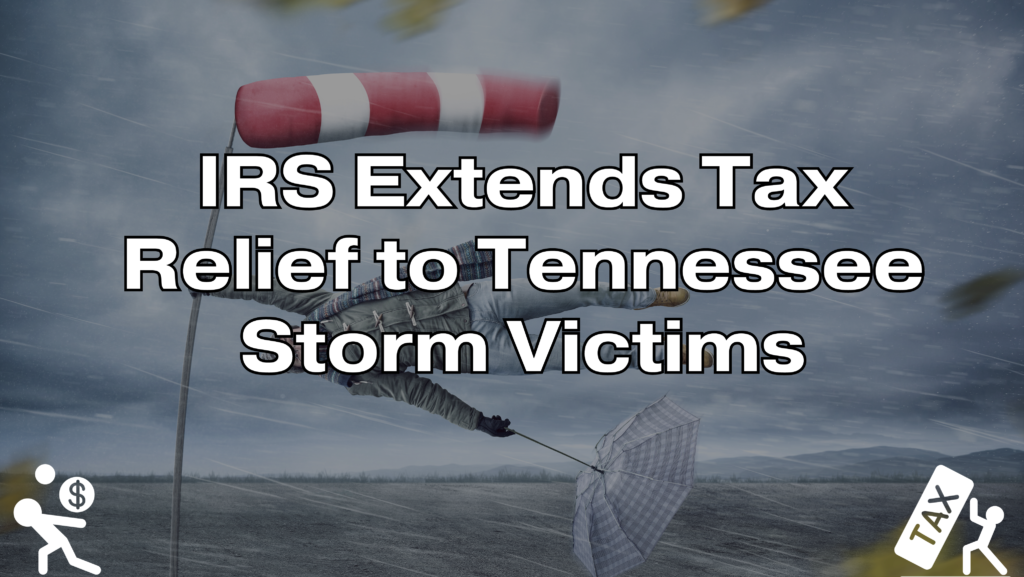In the wake of severe storms and tornadoes that wreaked havoc across parts of Tennessee in December, the IRS has stepped in to provide essential tax relief measures for affected individuals and businesses. The designated disaster areas, as identified by FEMA, encompass Davidson, Dickson, Montgomery, and Sumner counties. Residents and businesses within these areas are eligible for a range of relief measures, offering a lifeline during the recovery process.
Extending Deadlines for Affected Areas
The IRS has extended various tax filing and payment deadlines for taxpayers residing or operating businesses in eligible disaster areas. Specifically, deadlines falling between December 9, 2023, and June 17, 2024, have been postponed. This extension encompasses critical deadlines, including the April 15 individual tax filing and first-quarter estimated tax payments, providing affected individuals and businesses with valuable breathing room.
Waiving Penalties for Payroll and Excise Tax Deposits
Penalties for failing to make certain payroll and excise tax deposits during the initial relief period from December 9-26 will be waived, provided deposits are made by December 26. This measure aims to alleviate financial pressures on businesses directly impacted by the storms, allowing them to focus on recovery without the added burden of penalties.
Automatic Extensions for Affected Taxpayers
Taxpayers with an IRS address within the disaster zone automatically receive the extensions, streamlining the process and ensuring that those directly affected benefit from the relief measures without unnecessary administrative hurdles. The automatic extensions cover various aspects, including filing deadlines and certain tax payments.
Exempting Qualified Disaster Relief Payments
In a further gesture of support, qualified disaster relief payments are exempted from income, providing additional financial relief to those affected. This exemption acknowledges the unique challenges faced by storm victims and seeks to ease the tax burden during the recovery phase.
Postponing Deadlines for Specific Actions
Beyond filing and payment extensions, the IRS has postponed deadlines for electing to deduct casualty losses and taking retirement plan/IRA hardship distributions related to the storms. This comprehensive approach considers the various financial implications and decisions that individuals and businesses may face in the aftermath of the disaster.
Guidance and Ongoing Assessment
The IRS encourages affected parties to visit their disaster relief page for detailed information on returns, payments, and actions that qualify for extended timelines under this relief program. Additionally, FEMA’s ongoing assessments may lead to the expansion of designated disaster areas, ensuring that communities in need receive the necessary assistance.
As tax season approaches, the extended deadlines and relief measures offer crucial flexibility for storm victims who are simultaneously dealing with recovery efforts. The IRS remains committed to monitoring damage assessments and providing support to communities in need. This comprehensive relief program goes beyond mere deadline extensions, demonstrating a commitment to easing the financial burdens faced by those impacted by the devastating storms in Tennessee.

